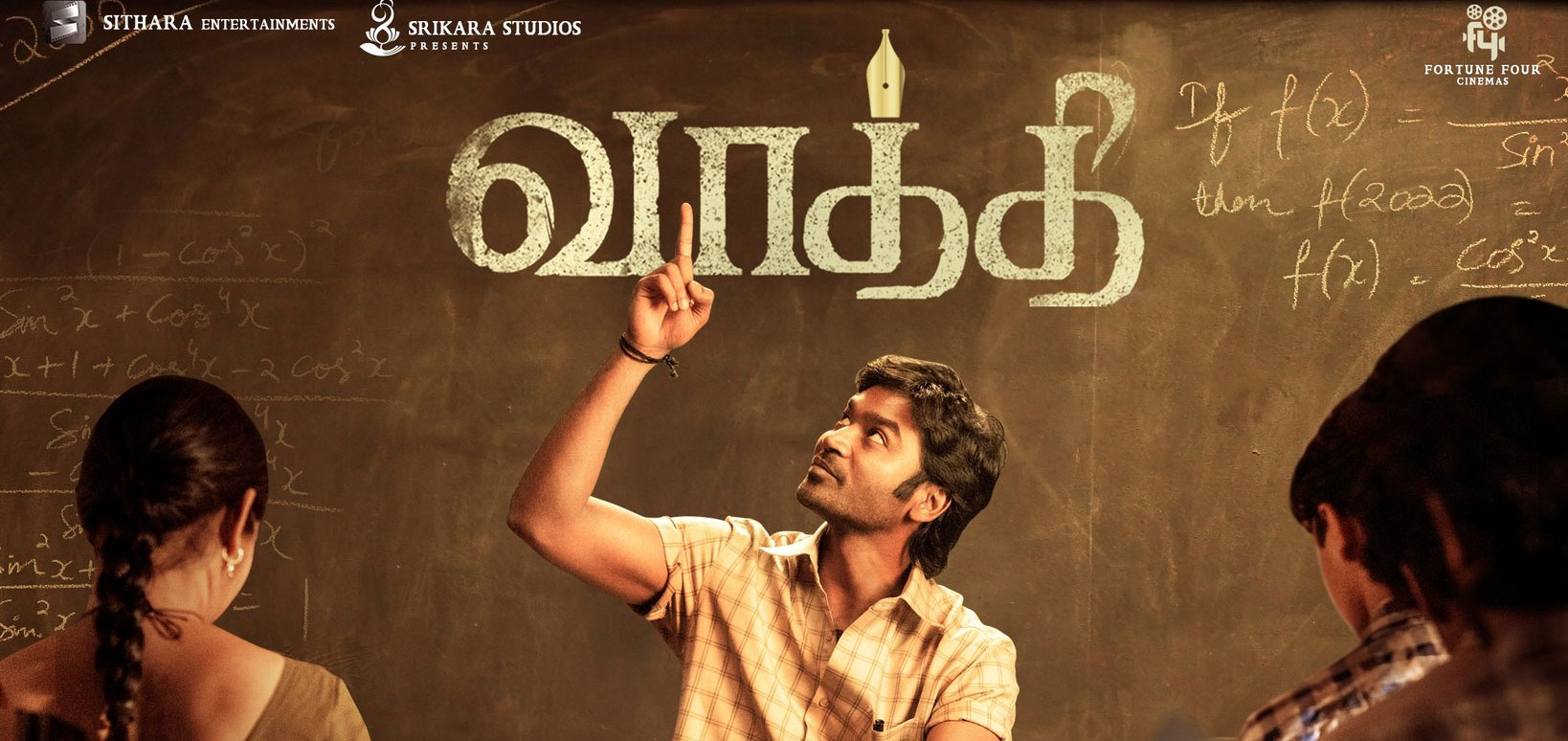Trending Now
- 830 voters names go missing in Kavundampalayam constituency
- If BJP comes to power we shall consider bringing back electoral bonds: Nirmala Sitaraman
- Monitoring at check posts between Kerala and TN intensified as bird flu gets virulent in Kerala
Entertainment
“Everyone expects the commercial song and dance Bollywood movies when they see the poster of an Indian film”
![]() June 25, 2018
June 25, 2018
His debut film Circus got praised for being unconventional at the 40th Moscow International Film Festival and it was India’s only entry at the international film festival. It is remarkable for an Indian filmmaker to receive praises that don’t state the stereotype and this debutant director has been able to garner just that for his film. We catch Tariq Vasudeva for a long chat about his film, his inspiration and film festivals. Read on…
Q 1. – Tell me about the film and what prompted you to do this film; given the subject and its complexities
A 1. – ‘Circus’ is a short film that aims to present a scathing mirror to society in regards to violence against women and class differences in urban India. It is a film that gives attention to the role of society and the influence that we all have in creating the massive problems that we face today. The film is essentially an exploration of the circumstances that we live in today.
I was prompted to write this film after the national tragedy of the ‘Nirbhaya’ incident and things have only been getting worse since then. I felt angry and helpless about the situation because I believe that as a society, we are unwilling to look at the causes that have created this atmosphere of violence against women. Yes, we must be angry about it, but unfortunately we cannot find a solution unless we first discover what makes men behave so violently and aggressively towards women – there are probably multiple reasons that we have to look at step by step – but we must have the courage to look at the ugly truth. And all of us have to do this. Society as a whole has to come up with the answers.
Q 2. – Our society is plagued with class and caste, but very few are able to deal with the layers and project it. Your take?
A 2. – I think it is incredibly important for everyone to explore these issues, especially artists – whether it is through music, painting, theatre or any other form of art. Films in particular have the power to get to the root of the issue and also has the power to influence the hearts and minds of people because it is a visual medium – and can definitely have an impact in minimising differences in class and caste. Unfortunately, we are plagued by derogatory and misogynistic Bollywood images repeatedly year after year – and it has become critical that all independent filmmakers take a stand against these images by creating work that represents the reality of life. A meaningful film can provide people the opportunity to confront the reality of our lives – and can hopefully transform our ideas on class and caste.
Q 3. – What does it mean to be the only film from India in the 40th Moscow international Film Festival? Do platforms like these matter?
A 3. – Being selected at a major international film festival is definitely a very big platform for international recognition. The Moscow International Film Festival received over 2000 submissions this year and only selected 12 short films from all over the world. ‘Circus’ was the only film from India in the main competition and this was a huge honour for a small, independent and low budget film like ‘Circus’. The Moscow International Film Festival is one of the oldest in the world and was first held in 1935! They have a long history of presenting great filmmakers like Sergei Eisenstein and Federico Fellini in their heyday. Also historically, very few films from India have been selected in the main competition section at any top tier international film festival, and ‘Circus’ was able to do that.
Q 4. – The feedback that the film got is; thought provoking and very unconventional for a film coming from India. What does that mean? How does the world understand our movie, only song and dance?
A 4. – The feedback that the film received is that everyone was quite moved by the hard hitting nature of the film. People are not able to easily digest a film that explores bias against women, especially when the director is a man. I was convinced that even though I am a man, I must tell this story because I care about the state of social relations between men and women in India. I would encourage everyone, women and men both, to create more films that explore gender bias and violence against women. We need to get to the bottom of this issue and all artistic endeavours are urgently needed, regardless of whether the person creating it is a woman or a man.
The film is also unconventional because everyone expects the commercial song and dance Bollywood movies when they see the poster of an Indian film. Many people in Moscow were surprised that my film had no music in it – and many were taken aback by the cinematic style of the film. As you know, mainstream images are dominated by Bollywood item songs and other misogynistic images of women – and I feel it is critical for us to counter this by creating realistic independent films in India, so that a global audience realises that meaningful Indian cinema does exist.
Q 5. Why do we fail to churn out realistic cinema that shows the grim reality, or is it what the international audience and critics lap up and not the Indian audience?
A 5. Yes, realistic Indian cinema that shows us the grim reality of our lives does receive international recognition abroad. However, the clout of Bollywood is very big and as a result many great films are never seen by an Indian audience. Cinema in India is mainly about making money. Nobody is interested in funding films that have an artistic standpoint. We have forgotten that great Indian filmmakers like Guru Dutt, Satyajit Ray and Ritwik Ghatak created classic films that have lasted forever and are still revered globally. With the entry of so many online portals like Netflix, Amazon and a host of others – I really hope that someone takes up the responsibility of ensuring that India is able to fund great Indian cinema in the future. We cannot continue to support the same Bollywood producers and directors that have been churning out crass Bollywood movies with the same formula, year after year. As with any industry, India must aim to be a global leader in the world of cinema and we should try to make our films stand for powerful storytelling worldwide.
Q 6. Tell us some of your favourite Indian movies of recent times and the actors that you want to work with.
A 6. – My favourite Indian films are old films – such as ‘Pyaasa’ by Guru Dutt, “The Apu Trilogy” by Satyajit Ray and “Salaam Bombay” by Mira Nair. I cannot think of any contemporary Indian movies that have caught my interest.
Regarding actors – I truly believe that there is a plethora of talented actors as well as non-actors who do not get the opportunity even to audition for good roles. As everyone knows, Bollywood movies are dominated by stars and star kids and they do not provide a level playing field for the amazing talent that is out there. I am interested in working with actors that have done Theatre because I believe that performing live on stage in front of an audience is a big test for any actor – and that has been proven by actors like Naseeruddin Shah and Om Puri among others. Also, I have the urge to work with non-actors who are cast in roles that suit them, because I believe everyone has an actor inside them.
Q 7. How difficult is it to make a movie that you believe in, in terms of finances.
A 7. – It is virtually impossible to make an independent film in India due to the finances involved. I had to save money for two years and I still had to borrow money to be able to shoot ‘Circus’ – which is only 26 minutes in duration. Trying to raise finances for a feature film is a gigantic task. Again, we must look abroad for international grants that would consider supporting an independent film with an interesting story line. If that does not work, we can try to use crowd funding but there is no guarantee that enough money will be raised to be able to shoot the film. And even if the film is shot, the finances needed for marketing and promotion are so immense these days that you require a large amount of money to do that. If a filmmaker wants to make a cheesy Bollywood story with cheap dialogues and punch lines – the chances of getting funding for your film are significantly higher!
Q 8. – What are you working on next?
A 8. – I have started writing the script for my debut feature film. I will go through the rigour of raising funds and putting the project together only after the script is complete. In the meantime, I am also creating a short animation film as well as doing research for a documentary. I am interested in creating work that explores the social and environmental impact of our actions. I believe that films have the power to transform thought and can lead the way in truly understanding the problems that we face today. Films can provide a springboard to making choices that can change all of our lives globally – and I hope to contribute in some way to be able to do that.
























